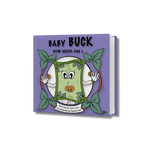You have no items in your shopping cart.
One aspect of your family’s financial well-being can be explained and illustrated in just a few steps. So many things in our lives depend on the choices we make so teaching your children how to think about the choices they can help you make will give them an easy introduction to creating a budget.
Teaching children that we can’t have everything due to a limited budget is a valuable lesson in financial intelligence. Here’s how you can do it effectively:
1. Be Honest but Positive
- • Instead of saying, “We can’t afford it,” say, “It’s not in our budget right now.”
- • Teach them that having a budget is about making smart choices, not just about lacking money.
- • Example: “We choose to spend on things that matter most, like our home, food, and saving for the future.”
2. Explain Needs vs. Wants
- • Needs: Things we must have (food, shelter, education).
- • Wants: Fun or luxury items (designer clothes, new gaming consoles, vacations).
- • Give examples: "We need shoes, but we don’t need the most expensive brand."
3. Introduce the Concept of Trade-Offs
- • Explain that every choice means giving up something else.
- • Example: “If we spend money on eating out today, we won’t have enough for a fun trip later.”
- • Let them help choose: “Do you want a small toy now or save for a bigger one later?”
4. Teach the Value of Earning and Saving
- • If they want something expensive, encourage them to save up or work for it.
- • Example: “If you do extra chores or save part of your allowance, you can buy it yourself.”
- • This teaches patience, effort, and smart spending.
5. Share Real-Life Examples
- • Show them how adults make financial choices too.
- • Example: “We’d love to take a big vacation, but we are saving for a new car instead.”
- • Make it relatable: “Just like you can’t buy every toy at the store, we can’t buy everything we want either.”
6. Focus on Gratitude and Creativity
- • Teach them to appreciate what they have instead of focusing on what they don’t have.
- • Example: “We may not go to Disneyland this year, but we can have fun with a picnic and outdoor games.”
- • Encourage DIY fun: Make your own pizza night instead of ordering out.
7. Show That Happiness Doesn’t Come from Expensive Things
- • Emphasize experiences, relationships, and creativity over material things.
- • Example: “Some of the best memories come from spending time together, not spending money.”
By framing financial limits as smart decision making rather than deprivation, kids will learn to respect budgets, work for what they want, and appreciate what they have.
Would you like a fun budgeting activity for kids to reinforce this lesson? Please email us at buck@buckacademy.org








